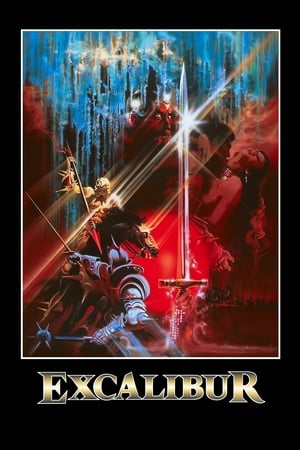
Excalibur
***Eccentric depiction of the medieval myths surrounding King Arthur*** In the late 400s Merlin the sorcerer of Britain takes advantage of the lust of King Uther (Gabriel Byrne) for a Duke’s wife, Ingrayne (Katrine Boorman), to grant him a boy who becomes King Arthur of Camelot (Nigel Terry) when he pulls Excalibur from the stone, a magical sword. Arthur marries Guenevere (Cherie Lunghi), but when Lancelot (Nicholas Clay) joins the Knights of the Round Table the two experience a profound affinity for each other. Meanwhile, Arthur’s half-sister, Morgana (Helen Mirren) is intent on incestuous deception to produce a son, Mordred. The script to this acclaimed 1981 film by John Boorman was adapted from Sir Thomas Malory's “Le Morte d'Arthur” (“The Death of Arthur”), published in 1485. The Arthurian folklores are used as an allegory of the succession of birth, life, decline, and renewal. The resulting film is reminiscent of works of mythography and is therefore episodic in nature. For instance, the sequence where the concept of the Round Table is established comes and goes in an awkward way. Another example is at the 95-minute mark where the story switches to the Knights’ search for the Holy Grail, which focuses on a heretofore unknown knight. Needless to say, the story’s not consistently compelling because the movie’s too segmented. The middle part detailing the romance between Guenevere and Lancelot, and the ramifications thereof, is the best part as far as that goes. The first half hour is a little convoluted, story-wise, and I suggest using the subtitles to discern accented dialogue and to keep track of the odd names. The search for the Holy Grail in the last 45 minutes breaks the film’s momentum because it feels tacked on. Nevertheless, if you can roll with the hammy acting, the melodrama and the episodic framework, there are a lot of positives to enjoy. Some good examples include: the beautiful sylvan locations, the fairy tale-like castles & sets, the imaginative costumes (e.g. the armor), the lovely ladies and the lush colors. Also, the soundtrack/score, which greatly utilizes “O Fortuna” by Carl Orff and a few pieces by Richard Wagner, is notable. Meanwhile, watch out for a young Liam Neeson as the knight Gawain. The big flaw here is that the story lacks steady thrust. For that, check out the more reality-oriented “First Knight” (1995) and “King Arthur” (2004). The film runs 2 hours, 20 minutes and was shot entirely in Ireland. GRADE: B-/C+
